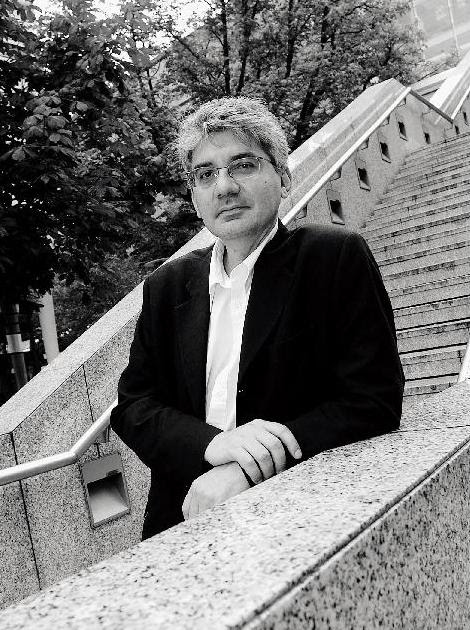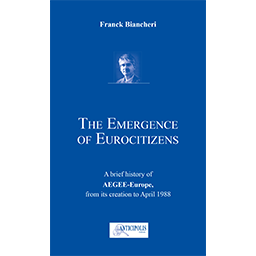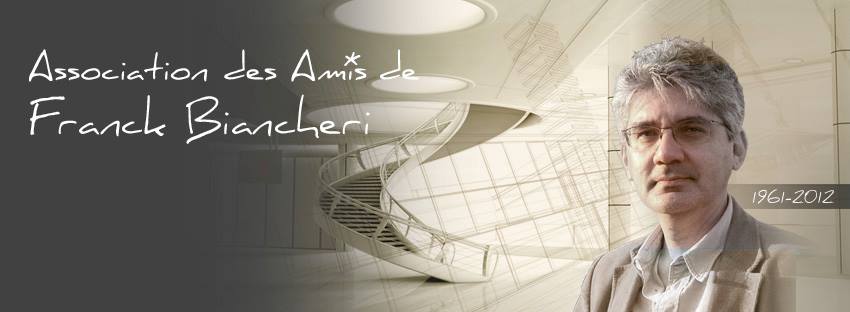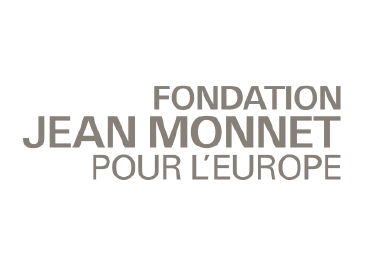The common democracy must adopt European reasoning: common market -> single market -> single currency -> single democracy
The exlcusive character of the politico-administrative engine in the European construction needs to be changed. There is urgent need to replace the “top-down” method by a “bottom-up” one, to include people in the European game.
The common democracy must adopt European reasoning: common market -> single market -> single currency -> single democracy
The second challenge for the European Union in the next two years consists in setting up the conditions for a European democracy. The European people must be placed at the centre of the European process and their confidence built up. At present, the actor of European construction are structures (lobbying system), while the basic element of any democracy is the individual, not the group.
∴
Politisation of the European Project: Euro-Leaders and Euro-Citizens
The Jean Monnet method, consisting in founding the European project on economic rationality, has come to an end. Many policies, such as the Common Foreign and Security Policy (CFSP) or the Justice and Interior Affairs (JIA) policy clearly step onto the political field; with the Monetary Union, the institutions are no longer able to turn down the political issue. The crisis recently experienced by Europe is partially the result of this phenomenon. Assumption of a political role means introducing the human dimension into the European project, i.e. Euro-Leaders and Euro-Citizens on both sides of the administrative machinery (European citizens want to be governed by men rather than machines).
The politisation of the European Union, which appears as a central condition to restart the process of European construction, goes together with the formulation of a European political project likely to motivate citizens. Without a catalyst project, the Union will remain submitted to serious centrifugal trends which will increase today’s difficulties.
However, no federative political project nowadays seem supported by European institutions, and this intensifies the general feeling of political vacuum.
The introduction of the Euro, with its huge political repercussions though, is basically meant as an economic project. It was not intended as a project uniting citizens, but for decision-makers, for economic and financial operators. Of course it directly affects the citizens and has had a significant impact on the whole of the Union and its future; however it was a mere instrument with no definitive goal in the eyes of the citizens.
The elaboration of a Charter of Fundamental Rights, created by a Convention (the first of its kind) containing institutions and civil society representatives, could have been a project likely to gather European citizens and bureaucrats. Nevertheless, once the Charter was published (with no wide communication tough), the way in which the Charter was created has not been made public. This means that most European citizens are unaware of its existence while those who are aware of it, are informed of its content.
The creation of a European Constitution, it would be, in the Union’s current situation, very complex and most probably result in profound divisions between those who wish to see the Union get off the political dead-end where it is. It probably represents the “dream” of jurists and academics, but it is unrelated to any concretely expressed citizens’ expectations; or a “dream” of a static Union when it is fundamentally a dynamic process. Such a project would take years and would divide both Member States and public opinion within each State. However, Europe is short of time given the coming challenges to be met by the Union.
Yet, once the notion of “European Public Space” came out, the EU authorities said that it was around this idea that EU’s future would have to be built. But this concept remains undoubtedly the fruit of the present system, far too bureaucratic. Only imagining it in slogans for wide public media campaigns would be more than enough to realise it.
Nevertheless one thing that results from these proposals is that today’s discussions turn around a common democracy: a common democracy for using common tools and facing common challenges, a common democracy for defining together each institutional partner’s specific role, a common democracy for connecting both the men and women at the head of the EU and its citizens.
This “political run” should be quickly explored in order to allow in one year’s time the launch of the future Community’ building site: together towards a common democracy.
Its content, its process, etc, all this should be rapidly empowered. The Euro’s arrival in the citizens’ pocket opened a period of social, economic, cultural and political uncertainty. 2002 was the real starting point of the historical upheaval created by the Common Currency. It is extremely important to have a stong credible Community administrative system to meet today’s challenges.
Franck Biancheri – What kind of EU do we want, 23/11/2004 ©FB Documentation
[divider]
More articles:
[divider]
Le raisonnement européen: marché commun -> marché unique -> monnaie unique -> démocratie unique s’applique aussi à la démocratie commune.
Le caractère exclusif du moteur politico-administratif de la construction européenne doit être modifié. Il est urgent de remplacer la méthode “top-down” par une méthode “bottom-up”, pour inclure les femmes et les hommes dans le jeu européen.
Le raisonnement européen: marché commun -> marché unique -> monnaie unique -> démocratie unique s’applique aussi à la démocratie commune.
Le deuxième défi pour l’Union européenne dans les deux prochaines années consiste à mettre en place les conditions d’une démocratie européenne. Le peuple européen doit être placé au centre du processus européen et sa confiance renforcée. À l’heure actuelle, les acteurs de la construction européenne sont des structures (système de lobbying), alors que l’élément fondamental de toute démocratie est l’individu, pas le groupe.
∴
Politisation du projet européen: Euro-leaders et Euro-citoyens
La méthode Jean Monnet, consistant à fonder le projet européen sur la rationalité économique, a pris fin. De nombreuses politiques, telles que la Politique étrangère et de sécurité commune (PESC) ou la politique de justice et d’affaires intérieures (JIA), entrent clairement dans le champ politique; avec l’Union monétaire, les institutions ne sont plus en mesure de refuser la question politique. La crise récemment vécue par l’Europe est en partie le résultat de ce phénomène. Assumer un rôle politique signifie introduire la dimension humaine dans le projet européen, à savoir les Euro-Leaders et les Euro-Citoyens des deux côtés de la machine administrative (les citoyens européens veulent être gouvernés par des hommes plutôt que par des machines).
La politisation de l’Union européenne, qui apparaît comme une condition centrale pour relancer le processus de construction européenne, va de pair avec la formulation d’un projet politique européen susceptible de motiver les citoyens. Sans un projet catalyseur, l’Union restera soumise à de sérieuses tendances centrifuges qui augmenteront les difficultés d’aujourd’hui.
Cependant, aucun projet politique fédératif ne semble aujourd’hui soutenu par les institutions européennes, ce qui intensifie le sentiment général de vide politique.
L’introduction de l’euro, avec ses énormes répercussions politiques, est essentiellement conçue comme un projet économique. Il ne s’agissait pas d’un projet réunissant des citoyens, mais de décideurs, des opérateurs économiques et financiers. Bien sûr, cela affecte directement les citoyens et a eu un impact significatif sur l’ensemble de l’Union et son avenir; cependant, ce n’était qu’un simple instrument sans but définitif aux yeux des citoyens.
L’élaboration d’une charte des droits fondamentaux, créée par une convention (la première du genre) réunissant des institutions et des représentants de la société civile, aurait pu être un projet susceptible de rassembler les citoyens et les bureaucrates européens. Néanmoins, une fois la Charte publiée (sans communication grand public), la manière dont la Charte a été créée n’a pas été rendue publique. Cela signifie que la plupart des citoyens européens ignorent son existence alors que ceux qui en sont conscients sont informés de son contenu.
La création d’une Constitution européenne serait, dans la situation actuelle de l’Union, très complexe et aboutirait très probablement à de profondes divisions entre ceux qui souhaitent voir l’Union sortir de l’impasse politique où elle est. Cela représente probablement le «rêve» des juristes et des universitaires, mais n’a aucun rapport avec les attentes concrètes des citoyens; un “rêve” d’une Union statique quand c’est fondamentalement un processus dynamique. Un tel projet prendrait des années et diviserait à la fois les États membres et l’opinion publique au sein de chaque État. Cependant, l’Europe manque de temps compte tenu des défis à venir auxquels l’Union devra faire face.
Pourtant, une fois que la notion d ‘«espace public européen» est apparue, les autorités de l’UE ont déclaré que c’était autour de cette idée que l’avenir de l’UE devait être construit. Mais ce concept reste sans aucun doute le fruit du système actuel, bien trop bureaucratique. Ne l’imaginer que dans des slogans pour de larges campagnes médiatiques publiques serait plus que suffisant pour le réaliser.
Néanmoins, une des conséquences de ces propositions est que les discussions d’aujourd’hui tournent autour d’une démocratie commune: une démocratie commune pour utiliser des outils communs et relever des défis communs, une démocratie commune pour définir ensemble le rôle spécifique de chaque partenaire institutionnel, une démocratie commune pour connecter et les hommes et les femmes à la tête de l’UE, et de ses citoyens.
Cette «course politique» devrait être rapidement explorée afin de permettre dans un an le lancement du futur chantier de la Communauté: ensemble vers une démocratie commune.
Son contenu, son processus, etc., tout cela devrait être rapidement renforcé. L’arrivée de l’euro dans la poche des citoyens a ouvert une période d’incertitude sociale, économique, culturelle et politique. 2002 a été le véritable point de départ du bouleversement historique créé par la monnaie commune. Il est extrêmement important d’avoir un système administratif communautaire crédible pour répondre aux défis actuels.
Franck Biancheri – What kind of EU do we want (original anglais), 23/11/2004 ©FB Documentation
[divider]
Visitez le centre de documentation !
[divider]






